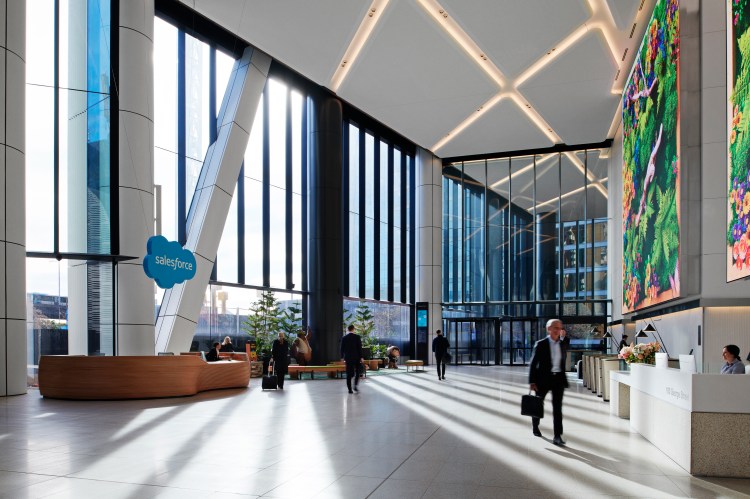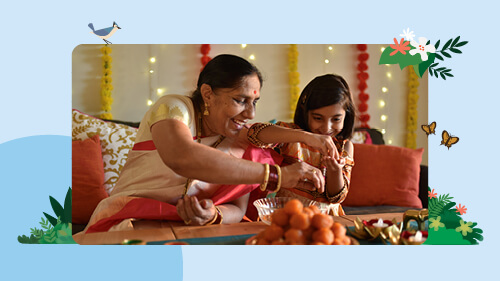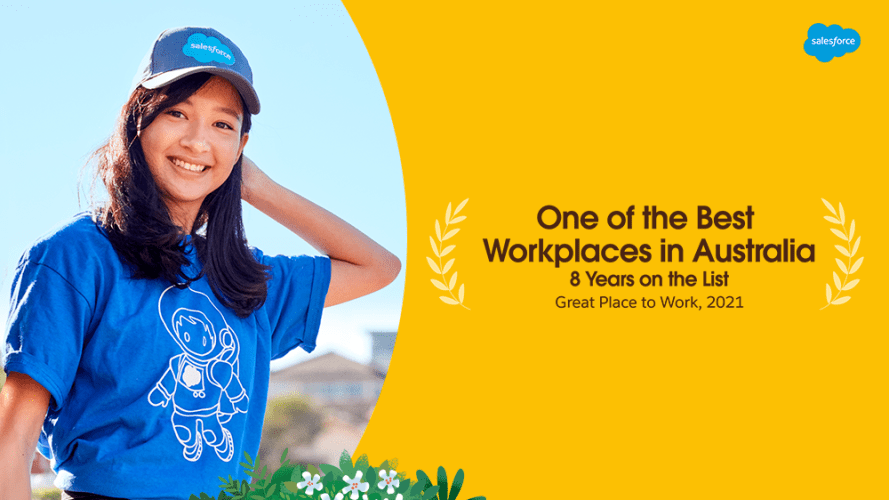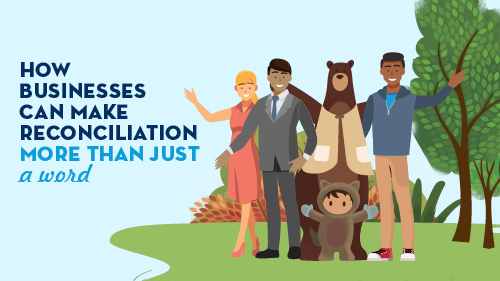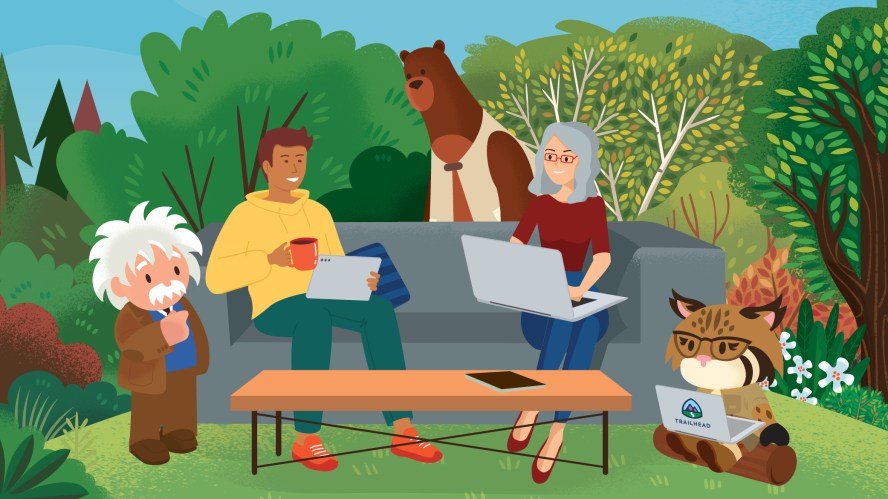How to Be an Ally to the Asian Australian Community



Jo Tan, ANZ leader at Asiapacforce, shares how we can be meaningful allies to Asian Australians not only by speaking out against racism, but by actively demonstrating our commitment to equality and diversity.
Salesforce Staff
“Talking is the best way to get educated and become a meaningful ally to your Asian Australian colleagues and friends,” says Jo Tan, ANZ lead for Asiapacforce, one of Salesforce’s Equality Groups. “Don’t assume you know what’s going on because you read the news. Ask your Asian friends what their experience is and how you might be able to support them. Have the conversations.”
Those conversations Jo is referring to are about the rise of anti-Asian hate sentiment.
The shocking hate crimes that have been perpetrated on the Asian American community has led many Australians and businesses to ask “how can we help?”. It’s an important question for Asiapacforce who are encouraging Salesforce employees to get involved with the group so they can listen, learn and actively be part of the change. For Asiapacforce, the first step to ending the rise of anti-Asian hate is creating an ecosystem of partnerships that can work together.
“It’s about using our platform to make connections and open doors for people who might not otherwise have access to those connections and opportunities,” says Jo. That might start internally through Asiapacforce’s monthly dinners and extend outward to include small organisations that Asiapacforce can help empower to fight inequalities and assumptions that are still used to discriminate against Asian Australians.
While Jo feels some optimism that “in your face” racism might be something his own children will hopefully not have to deal with, research reveals that our multicultural society still has a long way to go when it comes to eliminating racism towards Asian communities.
Unfortunately, racism against Asian Australians increased in the wake of the pandemic. A study by the Australian National University found that more than 8 in 10 Asian Australians have experienced discrimination during the COVID-19 pandemic. The Asian Australian Alliance reported that no less than 380 racially-fuelled attacks occurred over a two month period in mid 2020 with 65% of the victims being women. Verbally abused. Physically attacked. Spat on. Harassed. This is just a fraction of what our Asian Australian communities are facing – but sadly this is nothing new. Because while research showing 84.5% of Asian-Australians reported at least one instance of discrimination between January and October in 2020 is horrifying enough, in August 2019, that figure still sat at a shocking 82%.
So, how can organisations and individuals be better allies to the Asian Australian community?
1. Create an environment of inclusion and check your unconscious bias
One of the most common examples of racist stereotypes playing out in workplaces is the assumption that Asians are quiet.
Jo explains that in some Asian cultures, a respect for elders and leaders and a preference for speaking more privately on some matters, may appear to demonstrate introversion. But that doesn’t mean the person doesn’t have things to say.
Assuming Asians are submissive and passive is a demonstration of an often unconscious bias that can nonetheless have a very real and negative impact on Asian employees both personally and professionally.
So the goal for leaders in the workplace then, is twofold: to empower all employees and encourage their voices to be heard, and to actively challenge the deeply held and damaging assumptions of unconscious bias.
This can be achieved in part with the right training. “We give people leadership training, technical training, sales training – why not train people to listen better to those that have a voice but aren’t confident in expressing it in the workplace,” says Jo. “That way you raise up the whole team.”
Dismantling unconscious bias might prove a less straightforward task but requires at the very least, a better understanding that such biases perpetuate racism, even if they don’t seem obviously aggressively racist.
Jo himself has become all too used to people making judgements about him based on his appearance, only to see them dissolve when they hear him sounding “Aussie”.
As individuals, he encourages us to make a greater effort to check-in with our own unconscious bias. It can be an uncomfortable and confronting thing to do, but is critical if we are serious about combating racism. “A split second of additional thought before speaking can make a positive impact on another person’s life.”
2. Let’s all talk more openly about racism
Jo explains that for many Asians, talking about racial issues gets saved for the safe space of Asian friendship and support groups and networks. “But speaking out about racism is something everyone should be able to do.” Salesforce’s commitment to taking action against racism led to the creation of The Racial Equality and Justice Taskforce. With the rise in Anti-Asian rhetoric, racism, and violence, Salesforce has prioritised speaking out and investing in initiatives, programs, and people that are working to put an end to this racism.
But be mindful if your Asian friends or colleagues don’t want to discuss it with you. Be empathetic and respectful. It’s about listening, asking thoughtful questions and being supportive.
If you hear a racist joke or stereotype, you don’t have to let it pass. Jo explains that those situations are so common for many Asians that often they just shrug it off. But that doesn’t mean there isn’t hurt or anger. Many instances may not seem directly racist but harbour an undertone of inequality. Comments such as “you’ve done well for yourself” are addressed far more frequently to employees of colour. This is known as microaggression. It’s are hard to spot, which is why Salesforce has launched a company-wide microaggressions training to help combat microaggressions impacting the Asian community in the workplace. It’s here that active allies have a role to play – stepping in during these awkward moments and educating those involved.
Feel nervous about finding the best way to speak up? Amnesty International has some great tips for calling out racism when you see it.
3. As a business, align with your values and build a diverse leadership pool
The recent State of the Connected Customer report shows that 89% of customers expect companies to clearly state their values, and 90% expect them to clearly demonstrate those values. Sixty one percent of customers have walked away from brands that do not align with their values.
So speaking out unequivocally against racism is both a business and moral imperative for organisations. But another powerful way for organisations to demonstrate they stand for equality and against racism, says Jo, is to empower and uplift their own people and make sure they are represented in senior positions. Salesforce has launched an Asian leadership development program to empower, elevate and advance careers and widen access to opportunities.
“There’s this idea that Asians all study really hard at school and get top marks and go to university and become high achievers,” says Jo of the stereotype of the so-called ‘model minority.’
“Yet it may come as a surprise when they are not found in senior management or leadership roles.”
Indeed, according to a recent report from the Business Council of Australia and The Asia Society’s Asia Taskforce, Asian Australians make up 12% of the Australian population, but are “virtually absent” in leadership roles in business and government institutions.
A study by BOSS shows that only six of Australian’s hundred biggest companies are run by executives with a non-European background. Out of 98 ASX100 CEOs, 55 were born in Australia and of those born overseas, the vast majority were from Anglo-Saxon countries and only two were born in India, one in Vietnam and one in Malaysia.
This isn’t just troubling in terms of Australia’s economic connection to Asia, but because representation matters. “For real change,” says Jo, “we have to see diversity in leadership — whether it’s in a hospital or politics or a tech company.”
Resources you can draw on for help and information
https://www.aafoundation.org.au/
http://multiculturalfutures.org.au/services/mental-health-wellbeing/
https://www.beyondblue.org.au/get-support/get-immediate-support
https://humanrights.gov.au/complaints
Equality at Salesforce
Discover more about our core values and how we live them through Equality Groups like Asiapacforce.



